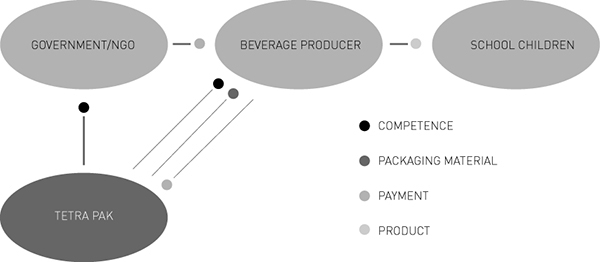Project procurement and corporate social responsibility
The world at large is starting to realise that maintaining good community relationships is part of any organisation’s licence to operate in the modern business environment, and at the same time is capable of increasing profits, reducing costs and benefiting the community.
The connection between corporate social responsibility (CSR) and corporate strategy is easy to understand. Much has been written about the strategic virtues of CSR in terms of its contributions to cost savings and risk management. Examples include:
- More efficient use of resources saves money and the environment.
- A greater concern for employee welfare can reduce employee turnover costs (see The social dynamics of governance).
- On the risk management side, reputation is a key factor where customer misgivings about corporate conduct can lead to reduced revenue streams or even boycotts (see ISO 26000, CSR and Stakeholders).
What’s changing now is the emerging recognition that proactive CSR can directly translate into new business or better outcomes. In order to find opportunities for win-win-win, however, CSR organisations need to focus on how they can leverage their needs or competencies to benefit the community.
Government agencies and local authorities in England are now subject to the UK Public Services (Social Value) Act 2012. The Act applies to the pre-procurement stage of contracts for services and requires the procurement officers to consider social value before the procurement process starts so these considerations can inform the design of the services required and the procurement approach implemented. The Act requires the rethinking of outcomes and the types of services to commission before starting the procurement process.
This new requirement expands the existing general Duty of Best Value which requires local government organisations in the UK to “make arrangements to secure continuous improvement in the way in which its functions are exercised, having regard to a combination of economy, efficiency and effectiveness”. Procurement officers at the pre-procurement stage are now required to consider how what is to be procured may be acquired in ways that will improve the social, environmental and economic well being of the area within which the authority operates, how they might secure any such improvement and to consider the need to consult (e.g. by letting several small packages to efficient local suppliers instead of a single large supplier).
Procurement officers are required to take a value for money approach (not lowest cost) in assessing contracts and the Act complements this by requiring them to consider opportunities to secure both the best price and meet the wider social, economic and environmental needs of their community. This approach can also help commercial organisations achieve better value.
A different option is using strategic CSR to help communities achieve their objective and drive sales. Tetra Pak is a world leader of packaging and processing of liquid foods. It freely offers its competence in packaging design and distribution within school feeding programs to a government or NGO that has the goal of providing nutritional aid.
The most significant difference with strategic CSR in this context is that some of the recipients of the corporation’s competence are not paying customers. The school children do not pay for the beverages; they are recipients of the governments/NGO’s charity. Neither does Tetra Pak receive payment from the government/NGO, it provides practical help without any direct compensation to develop and implement the programs. Tetra Pak only receives payment when its customers buy packaging material in order to package the beverage for the school feeding program. The result is that the government/NGO gets access to Tetra Pak’s competence and effective organisation, Tetra Pak gets paid for its packaging material (through its customers), and the school children receive necessary nourishment.
Above: How Tetra Pak contributes to the community
For a corporation to strategically contribute to social welfare in ways similar to Tetra Pak requires an understanding of its competences and how they can solve problems within its political and social landscape. Devising such opportunities requires analysis and creativity, far beyond those of cost saving exercises, but if successful the rewards for both company and community can be much greater. This is profitable responsibility!
This post has looked at two very different examples that demonstrate the way progressive governments and organisations are using CSR to reduce costs, increase revenues and benefit their communities to create a win-win-win outcome. I’m hoping this type of beneficial stakeholder engagement will continue to expand.


